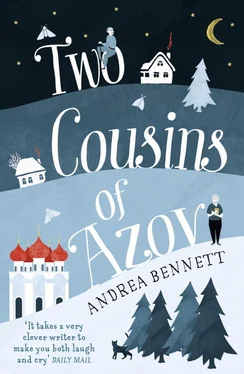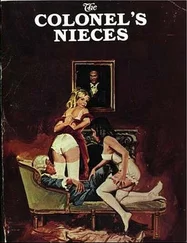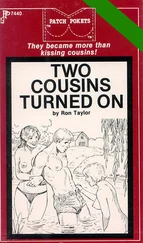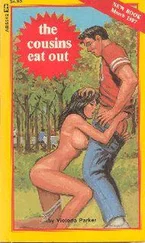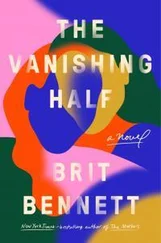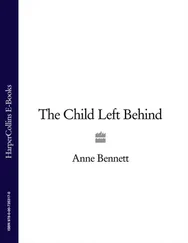‘There was nothing in his notes about his heart!’
The hands stilled and he pulled back to look at her.
‘How do you know what was in his notes?’
She met his gaze, raised her chin, and decided to tell the truth. ‘I read his file.’
He almost jumped off the bench. ‘What do you mean, you read his file?’
‘Don’t look like that! It was when I came to see you, the other week. You fell asleep. I was bored. And, well, I’m studying gerontology too, you know. I read a lot of the files. You were catching flies, at the time.’ She mimed a snore and shrugged, passing him the bottle.
She’d had to work quite hard to make him forget about it. That was unusual. He had been like a dog chewing a baba’s leg, not her usual billy-goat, easily led by his horns. She’d eventually got to her bed with numb fingers and toes. But it had been worth it.
And now she was admiring her reflection in the dusty windows of the pharmacy, where normally she’d have clocked on that morning. The blue-faced boredom of the early shift had spoilt her days all through the summer, had ground her down almost to nothing. How she’d enjoyed skiving today. She resisted the urge to spit in the doorway and instead focused on the positive; her intelligence, her beauty and her resourcefulness. She rearranged her hat, the rich red of the knit complementing the black-earth glow of her hair. She had told them she was sick, but now she didn’t care if they saw her.
She smiled serenely as she walked on. It was funny how you could put up with almost anything, any kind of daily drudgery, desertion, or despair, once you saw a clear way out, gathered your courage, and took those decisive steps.
She stopped at a bank of grey public pay-phones glistening like giant slugs in the autumn sun. There would be more privacy here than at her student hostel. She chose a phone for inter-city calls and heaved out her purse, fat with brown plastic phone tokens. It was followed by her notebook, where she had hurriedly scribbled down the number and address of the flat – the same night she’d read his file. The same night she’d taken his key. She grinned again at her own cleverness and punched in the digits. The pips pipped, and she pushed in the play-money.
‘Is that Babkin? Yes, it’s Polina. I… yes, don’t worry about it… the carpet tiles come up, I’ll replace it. It’s fine.’ Babkin’s voice slurred through his leathery gums. She really didn’t want the detail. She decided to talk over him. ‘Listen, I have good news: the problem at this end is totally resolved, and I can extend the lease indefinitely…’ She paused until the grateful babble at the other end subsided. ‘But I’m sure you’ll understand, as the circumstances have changed for the better, I now need three months’ rent, in advance… cash, dollars.’
Babkin didn’t like it. He squeaked fiercely. She was unmoved. ‘I’ll explain again. When it was a short let, you could have it week on week, but now, well, it will be a long let, and I must ask the market rate. I can’t thieve from myself, can I? And the market rate in Rostov is a three-month deposit.’
She waited for silence, and let a pause inch by.
‘Then you leave me no choice. If you won’t pay, you must go. Two weeks; it’s in the contract…’ Babkin turned ruder, but she knew he would go. He didn’t have residency papers, he wouldn’t dare go to the police. He didn’t have a leg to stand on, really. She reminded him of the fact, and replaced the receiver. Twin plumes of steam fired from her nostrils.
Babkin could go. If the old man was now long-term at the Vim, she could accommodate a more solid tenant, someone semi-permanent, who could pay upfront. Someone with teeth and a job. A working family, maybe. Her cheeks swelled in a grin. Perhaps she could advise the good doctor Vlad on the old man’s treatment? Use a little psychology… And perhaps she would ensure that he never made it back to his flat in Rostov, at all.
She puffed on a Pall Mall as she walked. She would have a proper clear-out once Babkin was gone: she’d only had time to shove a few boxes into cupboards so far. The tenant was camping amid collections of paintings and paper, mountains of books, a mangy sheepskin, an ugly mannequin, and who knew what else. The place had been a state: that’s why he’d had a good rate. She caught sight of herself in a shop window, and caught her breath: that smile was beautiful, audacious even. The smile of a winner.
On she walked, heading for the bus stop but somehow unable to resist the call of the White Flamingo department store and its folk-craft collectibles. For most of her youth its shelves had lain half-empty and uninviting. How she’d detested it. But things were changing: enterprise had the upper hand, in retail as in all areas of life. The tubes in the neon sign had been replaced, and now the White Flamingo had found itself. Oases of interest now sparkled within its walls in place of endless dusty textbooks and single sets of Czech make-up that you could look at but not buy. Even the sexless mannequins that had stood guard over the fall of the Soviet Union had been re-born, now crookedly resplendent in garish Lithuanian polo shirts, Capri shorts fresh from Turkey, and lacy Chinese knickers.
One section alone fascinated Polly, and it didn’t feature a single imported item. She pushed open the dented metal door and hurried past Counter No. 1, Stationery and School Products, which had always been a desert to her, and made for her treasure trove, her Shangri-la: Counter No. 2, Gifts and Souvenirs.
In a glass cabinet with a scratched top that none were permitted to lean on, there sparkled a myriad of rainbow colours, shiny shapes and glistening figures. Crystal, porcelain, bark-work and lacquer: intricate, beautiful, tiny and valuable. Polly leant her hands on the impenetrable glass and stared down, mute black eyes digging into every curve and notch of each folk-work collectable. Her favourite was the Palekh work: dark lacquered trinket boxes, each with a scene from Russian folklore depicted on the lid in tiny, glowing brush strokes. Each with a value of over 150 dollars. Each a solid investment, the real black gold. She counted out the boxes, recognising the fairy-tale scenes depicted on each one: the firebird and the grey wolf; Ruslan and Ludmila; a troika of long-limbed horses with flowing manes like cresting waves; the plunging magic pike; Father Frost in his fur coat and boots, and her favourite – the brave and fearless Frog Princess. She gazed at the tiny pictures on each side of the box, losing herself in them, like a child. Here was Princess Vasilisa the Wise, holding her discarded frog skin; Vasilisa performing magic; her husband the Prince seeking her salvation from Baba Yaga, and the final defeat of her evil master, Kashei the Immortal. Polly stood, impervious to the jostles of the shoppers around her, her senses filled with the heaving black forest, the smell of the swamp, the hut on chicken legs, and the power of magic.
She felt comforted: at one with Mother Russia, if not with her own progenitor. Wasn’t she following in the footsteps of her distant forebears? Who needed family when you had ancestors?
The folklore princess had grabbed her happiness: made her own fate. Vlad called her his princess. And she would be. But princesses needed money.
She felt rest in her soul and a calm on her brow just looking at the boxes, safe in the knowledge that soon, very soon, another would be in her possession. Little boxes to tell her she wasn’t stupid. Little boxes to tell her everything would be fine. Little boxes that were her friends, and her security. You could never have too many Palekh boxes.
‘Girl, move out of the way, would you, I can’t see the porcelain!’ An underfed man with a sharp nose and the flat, grey eyes of a shark breathed lunchtime’s omelette into her face as he leant across to examine a ceramic representation of the folklore hero Sadko, who stood like a glazed and puffy ice-cream next to the darkly delicate Palekh boxes. She recoiled from the armpit of his leather coat: it was cold and slightly slimy.
Читать дальше
Конец ознакомительного отрывка
Купить книгу
